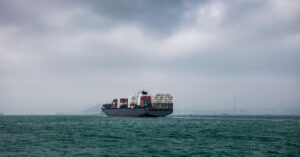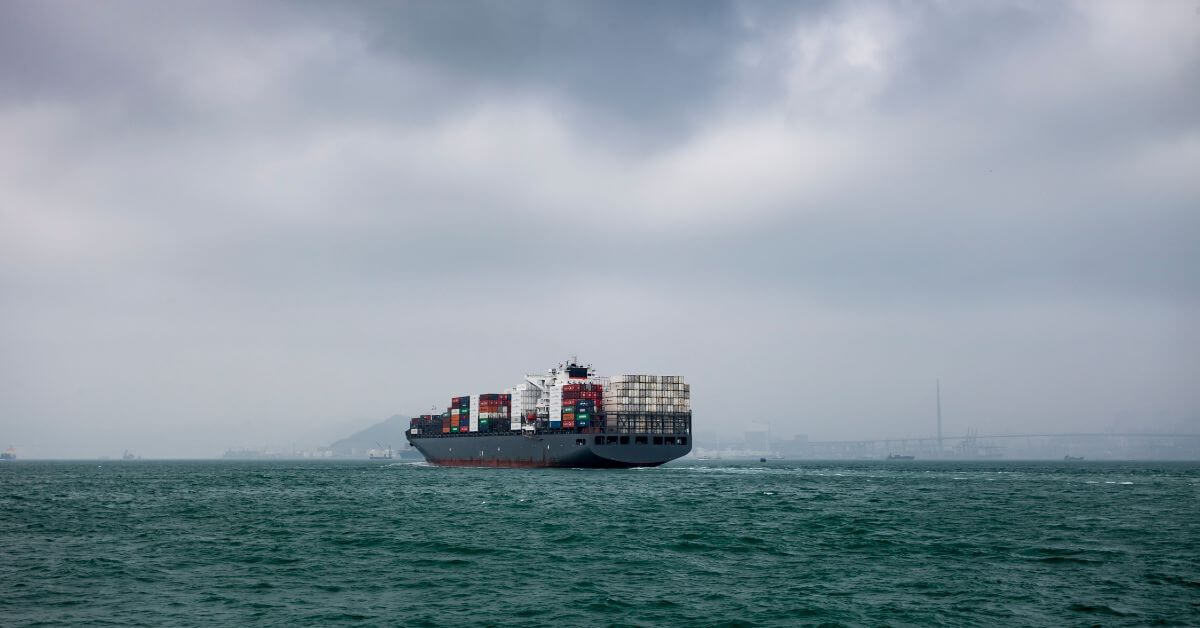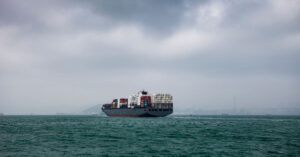
Indian PM Modi To Inaugurate Country’s Largest Cruise Terminal In Mumbai
September 20, 2025
First U.S.-Built WTIV Arrives In Virginia For Nation’s Largest Offshore Wind Project
September 20, 2025

The chief engineer of the container ship MSC Michigan VII has pleaded guilty to federal charges after the vessel lost control in Charleston Harbor last June, forcing the temporary closure of the Arthur Ravenel Jr. Bridge and evacuation of nearby beaches.
Fernando San Diego San Juan, 61, a Filipino national, admitted to failing to report hazardous conditions aboard the ship and obstructing the subsequent federal investigation, according to court documents.
Under the plea agreement, he faces a maximum of six years in prison for the first charge and five years for the second, along with fines of up to $250,000 and up to 3 years of supervised release for each count. Special assessments of $100 per charge also apply.
The incident occurred on June 5, 2024, when MSC Michigan VII, a 997-foot, 74,000-ton vessel with a capacity of 6,648 TEU, departed Charleston at around 11:45 a.m. The ship experienced a propulsion failure and began traveling at speeds between 14 to 17 knots, more than twice the legal limit for ships in the harbor. Deputy Commander Randy Preston reported that the pilot on board indicated the vessel lost control of the engines, which were nearly full-ahead.
San Juan joined the vessel in April 2024 as chief engineer but received only a five-hour handover instead of the usual 24 hours needed to understand the ship’s systems. Soon after taking charge, he found several mechanical problems, including leaking air compressors, faulty generators, and leaks in the freshwater cooling and lube oil systems.
Court records show the main engine’s RPMs often failed to match the bridge telegraph orders. To cope, engineers manually adjusted the linkage rod between the governor and fuel rack, a risky practice. On June 5, the third engineer attempted this adjustment when the engine was underperforming, but the rod disconnected. San Juan tried several times to fix it before other engineers intervened.
During repairs, the vessel became a runaway. Authorities closed the Arthur Ravenel Jr. Bridge and cleared local beaches to avoid accidents from the ship’s wake. The incident caused more than $500,000 in damage, including broken mooring lines, damaged fittings and gangways, and minor injuries to two recreational boaters. Carver Maritime, LLC, later sued MSC Michigan VII over these damages.
The ship was anchored and detained by the U.S. Coast Guard for 44 days before being released from an IMO detention order on July 22, 2024.
During federal investigations, San Juan admitted to lying to the U.S. Coast Guard and the National Transportation Safety Board. He falsely claimed that the linkage rod on the ship had never been adjusted and told other engineers to make the same statements. He also denied there were delays between the bridge telegraph and engine response, even though he knew those delays had happened. In court, San Juan confessed to obstructing the investigation and helping the ship’s master hide hazardous conditions on board.
According to the plea agreement, failing to report a hazardous condition can result in up to six years in prison, while obstructing an agency investigation carries a maximum of five years. Both offenses also allow fines of up to $250,000 and supervised release of up to three years.
The vessel involved, MSC Michigan VII, was built in 2000 and has been operated by MSC since 2022. At the time of the incident, the ship had engine and mechanical problems.
The main air compressors were partially repaired but not fully functional, leaving the main engine at risk of insufficient air during maneuvering. The generators were unable to sustain 75% power, restricting bow thruster use and creating blackout risks in port.
Reference: abcnews4
Source: Maritime Shipping News


